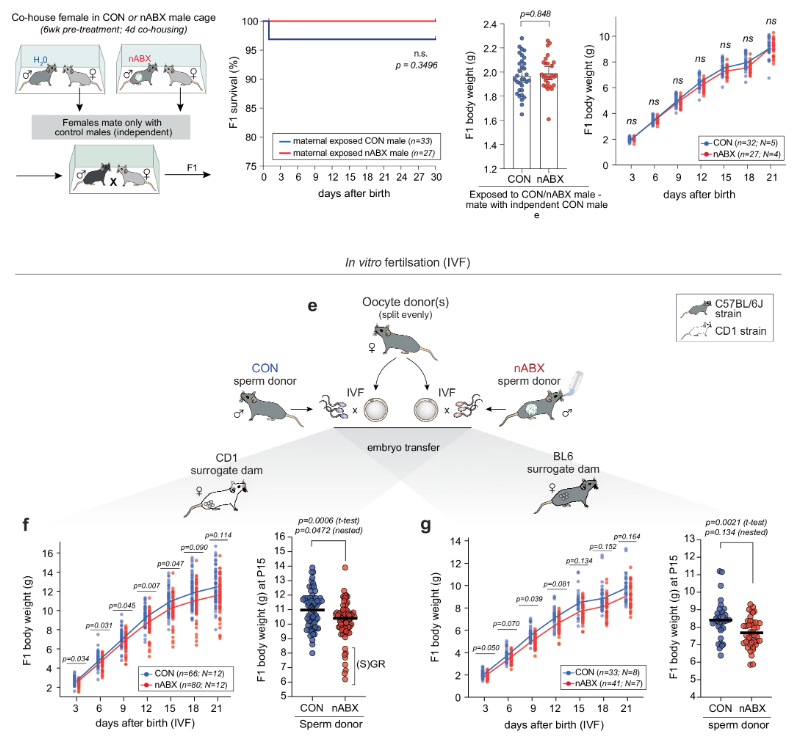A groundbreaking study in mice suggests that a father’s gut microbiome—the community of bacteria in the digestive system—can influence the health of his offspring. Researchers found that perturbations to the gut microbiota of male mice, induced by antibiotics or laxatives, increased the likelihood of their offspring being born with low birth weight, severe growth restrictions, and a higher risk of premature mortality.
The study sheds light on a regulatory pathway dubbed the “gut-germline axis,” where environmental factors affecting the gut microbiome can propagate to influence the health of future generations. Interestingly, restoring the father’s gut microbiota before conception reversed the adverse effects on offspring health, suggesting that the impact is reversible and potentially treatable.
Key Findings:
- Gut Microbiome Impact on Offspring Health: The study reveals that perturbations to the gut microbiota of prospective fathers can increase the probability of their offspring presenting with low birth weight, severe growth restriction, and premature mortality.
- Placental Origin of Intergenerational Effects: Dysbiotic fathers trigger an elevated risk of in utero placental insufficiency, highlighting the placenta’s role in mediating mammalian intergenerational effects. Placental defects derived from dysbiotic fathers include reduced labyrinth zone, impaired vascularization, and increased placental infarction.
- Reversible Effect: Restoring the paternal gut microbiota before conception rescues the emergent phenotypes in the offspring, indicating that the effect is reversible and remedially tractable. This suggests potential avenues for mitigating adverse pregnancy outcomes associated with gut microbiome perturbations.
- Transmission of Disease Risk: Disease risk is transmitted to offspring through the germline and is provoked by significant perturbations in the gut microbiome of prospective fathers. However, restoring the paternal microbiota before conception can rescue the adverse effects on offspring health.
Methods:
- Inducible Model of Gut Microbiota Dysbiosis: The researchers established an inducible model of gut microbiota dysbiosis in isogenic male mice using non-absorbable antibiotics (nABX).
- Analysis Techniques: Techniques such as 16S ribosomal RNA sequencing were employed to assess changes in gut microbiota diversity, abundance, and richness. Transcriptomic analysis of embryos and placenta at different gestational stages was conducted to elucidate molecular mechanisms underlying offspring phenotypes.
- Observations: Dysbiosis induced by nABX treatment led to marked reduction in gut microbiota diversity and abundance, reversible after nABX withdrawal. Transcriptomic analysis revealed dysbiosis-induced changes in placental gene expression associated with impaired placental ontogeny and function.
Link to the article : https://tinyurl.com/3yan4sue
